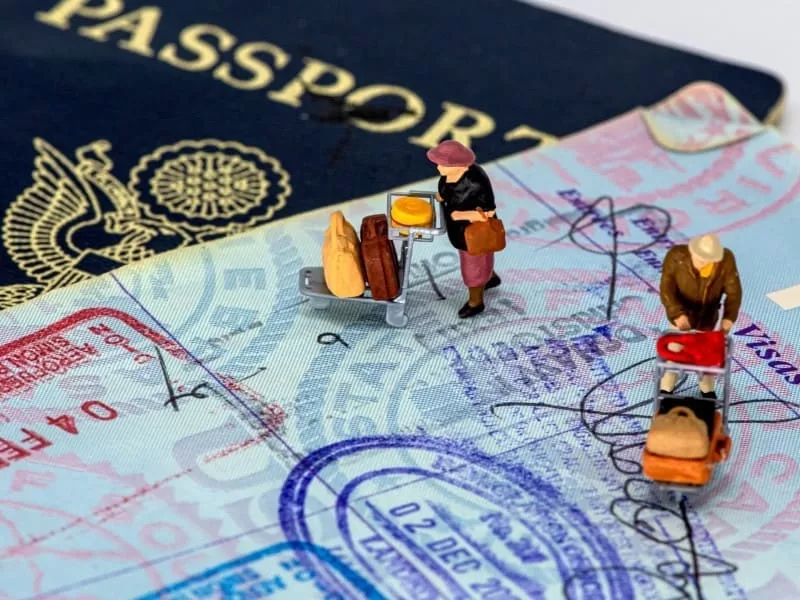
Brexit. How does the new visa system work?
In 2016, a referendum was held for the United Kingdom on leaving the EU, and the result, as we all know, was in favour of the proposed initiative. From that moment on, negotiations between the British government and the European Union took place, leading to a transitional period that culminated in a Trade and Cooperation Agreement, signed on December 30, 2020, and in effect since May 1, 2021.
Today, more than a year after that agreement was reached, Brexit is now a reality, creating two separate territories (the EU and the UK) with different markets and legal frameworks. Will the United Kingdom’s exclusion from the Schengen Area pose an obstacle to the usual movement of people and goods? What measures are expected to ensure the normality of labour and trade relations?
The reality is that Spanish companies providing services to the British are experiencing a significant impact when obtaining visas in the United Kingdom for their employees. We are going to analyse the peculiarities of this scenario and put into context the importance of professional translation in this new reality.
The Trade and Cooperation Agreement between the EU and the United Kingdom.
We cannot know whether all British were aware at the time of the consequences their departure from the EU would bring. While the political was almost unanimous, the reality is that the economic outlook after Brexit is not as promising. This is because the United Kingdom’s exit from the EU will have significant repercussions on international trade.
Proof of this was the agreement that was created to lay the foundations for future trade relations between both territories. The core of the agreement consists of minimum cooperation conditions. One of them is that trade in goods is exempt from certain tariffs, but the free movement of people is restricted. This measure represents a setback compared to the legislation in place in the member states.
Therefore, within the framework of the Agreement negotiations, the EU took a stance against the mobility restrictions proposed by Downing Street, although not all European demands were reflected in the final text. The main change is the requirement for non-British citizens to obtain a work permit in order to reside in the United Kingdom.
The work permit in the United Kingdom
The Agreement places limits on the long-term stays of foreign citizens. Those wishing to stay in the United Kingdom for more than 90 days within a single period will need a work or residence visa. It is important to notice that the British government will not discriminate against citizens based on their countries of origin, something that seemed likely to happen if it hadn’t been for the EU’s insistence on this matter during the negotiations.

Foto de Sander Crombach en Unsplash
However, a visa will be required for nearly all business activities conducted on British soil that involve a stay of more than three months, although the following exceptions are provided:
- Touristic guides.
- Interpreters.
- Commercial fairs
- Teaching seminars or conferences
- Negotiation of contracts.
- Markets research.
All activities not covered in Article 8 of Annex SERVIN-3 will require the issuance of a work permit in order to be carried out in the United Kingdom. People such as a musician, photographer, or professional model will need to obtain a work visa to carry out their professional activity in this country, regardless of the duration of their stay there.
Besides, there will be no automatic recognition of professional qualifications: engineers, architects, veterinarians, doctors, nurses, or dentists wishing to practice their profession in the United Kingdom will need to apply for the recognition of their qualifications from the British government.
The work of the sworn professional translator after the United Kingdom’s Brexit
Sworn translation is a service that provides legal validity to the translation of official documents, that is, those that must be presented to a public authority. Therefore, the agency of translator offering this service must translate the document and certify the integrity of its content.
The restrictions applicable to the free movement of people between the United Kingdom and the rest of Europe result in a significant creation of official documents, which are essential for citizens who are going to work in British lands.
Apart from the already mentioned work permits, many professionals will need to request a translation of their academic certificates in order to obtain the necessary recognition to carry out their activities. And we must not forget the criminal background certificates that many organizations require from candidates applying for a job vacancy.
The required profile for these translations is that of a sworn international translator who, in Spain, is authorized by the Ministry of Foreign Affairs and Cooperation. A translator from those who collaborate with an agency like Sanscrit.
Do you need a sworn translation or interpretation?
Need a sworn translator to provide legal validity to the translation of your official documents? Looking for a sworn translator to present an official document to a government organisation? Contact us through the following questionnaire and we will send you your budget for the professional translation, as soon as possible, without compromise.


Oliver Harding
Posted at 02:11h, 14 FebruaryThe impact of Brexit on international business relations is undeniable. The new visa requirements seem to add another layer of complexity for companies that operate across borders. It’s interesting to see how the demand for sworn translations has surged, reinforcing the need for reliable language services in legal and administrative matters.
Gerard Tolosa
Posted at 10:15h, 14 FebruaryThank you for your comment, Oliver! 🌍 Indeed, Brexit has reshaped professional mobility, making sworn translation services essential for those navigating the new regulatory landscape. If you need certified translations, we are here to help. Find your sworn translator in Barcelona.
Alice Donnelly
Posted at 08:06h, 17 FebruaryAs a freelance consultant, I’ve seen first-hand how Brexit has complicated work permits for professionals traveling to the UK. The requirement for translated academic certificates and criminal background checks has made sworn translation indispensable. A well-executed translation can mean the difference between approval and rejection!
Gerard Tolosa
Posted at 09:27h, 17 FebruaryThank you for sharing your experience, Alice! 🌍 Indeed, sworn translation plays a crucial role in ensuring compliance with post-Brexit requirements, especially for professionals seeking recognition in the UK. Accuracy and legal validity are now more important than ever. Find your sworn translator in Barcelona.
Patrick Donovan
Posted at 11:37h, 19 FebruaryBrexit has certainly reshaped the professional landscape for many industries. The added complexity of visa requirements makes professional translation more crucial than ever, especially for legal and official documentation. Companies and professionals navigating these changes will greatly benefit from expert linguistic support to ensure compliance and smooth transitions.
Gerard Tolosa
Posted at 17:29h, 19 FebruaryAbsolutely, Patrick! 🌍 The new visa system has made sworn translations indispensable for professionals seeking recognition in the UK. From work permits to academic credentials, accurate and certified translations ensure a seamless process. Find your sworn translator in Barcelona.